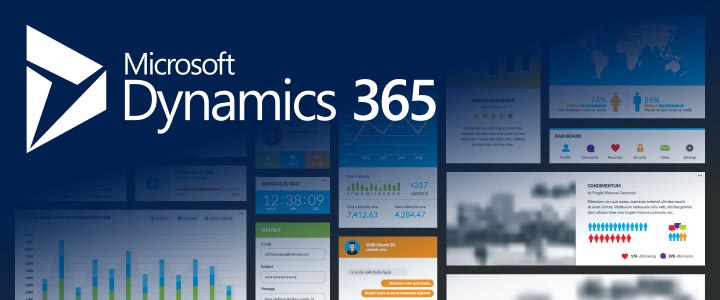- March 22, 2024
- Posted by: Vineeta Birthlal
- Category: Business Central

When it comes to choosing the right ERP solution for your business, Microsoft Dynamics 365 partner in uae offers two powerful options: Business Central and Finance & Operations. While they both belong to the Dynamics 365 suite, they serve different segments of the market and come with distinct features tailored to varying business needs. Let’s delve into the key differences Between Dynamics 365 Business Central and Finance & Operations to help you navigate your decision.
1. Target Audience
Business Central: Ideal for small to medium-sized businesses (SMBs) or divisions of larger enterprises. It covers essential functions like financial management, supply chain, sales, and customer service.
Finance & Operations: Geared towards medium to large enterprises with complex operational and financial requirements. It offers advanced features spanning financial management, supply chain management, manufacturing, and human resources.
2. Scope and Scalability
Business Central: Provides core functionalities suitable for businesses with simpler processes and fewer users. It encompasses financial management, supply chain, project management, and sales.
Finance & Operations: Offers extensive capabilities for large enterprises, handling complex processes and large volumes of data. It includes advanced features for financial management, supply chain, manufacturing, retail, and human resources.
3. Customization and Extensibility
Business Central: Allows customization through extensions and integrations with Microsoft products like Power BI, Power Apps, and Microsoft Flow. However, customization options may be comparatively limited.
Finance & Operations: Provides extensive customization options, enabling modifications to business processes, workflows, and data models. It supports advanced development with X++ and integrates with other systems through APIs.
4. Deployment Options
Business Central: Offers both cloud-based (SaaS) and on-premises deployment options, with the cloud version being more prevalent.
Finance & Operations: Primarily offered as a cloud-based solution, with an on-premises option available. The cloud version receives regular updates and enhancements from Microsoft.
5. Integration with Other Systems
Both solutions seamlessly integrate with Microsoft products such as Office 365, Power Platform, and Azure services.
Finance & Operations may offer more advanced integration capabilities due to its broader scope and extensibility options.
6. Cost Considerations
Business Central: Generally, has lower licensing costs, making it more budget-friendly for smaller businesses.
Finance & Operations: Tends to have higher licensing costs due to its advanced features and capabilities, but may provide greater value for larger enterprises with complex needs.
Dynamics 365 Finance and Operations: The Solution for Medium to Large Businesses
Dynamics 365 Finance and Operations is an advanced ERP solution tailored for medium to large-sized businesses. Offering scalability and a wide range of features, it can adapt to your business’s changing needs as it grows. From financial management and supply chain management to human resources and project management, Dynamics 365 Finance and Operations has you covered. It handles complex financial processes, advanced inventory management, and streamlined procurement processes, making it the go-to choice for businesses with intricate operations.
Business Central: Ideal for Small to Medium Businesses
As a cloud-based solution, it’s easy to set up and use, making it ideal for businesses with limited IT resources. While offering basic ERP functionality, including financial management, inventory management, and sales and purchase management, Business Central provides a cost-effective solution for businesses with simpler needs.
Choosing the Right Solution for Your Business
When it comes to choosing between Dynamics 365 Finance and Operations and Business Central, there’s no one-size-fits-all answer. Dynamics 365 Finance and Operations is best suited for medium to large businesses with complex financial and supply chain management needs, while Business Central is more suitable for small to medium businesses looking for an affordable ERP solution with basic functionality.
Conclusion
In conclusion, ERP systems are a game-changer for businesses looking to streamline their operations and drive growth. Whether you’re a large corporation or a small startup, there’s an ERP solution out there for you. Dynamics 365 Finance and Operations and Business Central offer unique features and capabilities to meet the needs of businesses of all sizes. With the right ERP system in place, you can take your business to new heights of success!Ready to integrate an ERP system into your business? Contact us today to learn how CRM365 can help you implement Dynamics 365 Finance and Operations or Business Central for a seamless and efficient operation. Let’s embark on this journey to transform your business together!
The choice between Dynamics 365 Business Central and Finance & Operations hinges on factors like the size, complexity, and budget of your business. Business Central suits SMBs with simpler requirements, offering cost-effective solutions, while Finance & Operations caters to larger enterprises with more intricate operations, providing advanced features and scalability. By understanding your business needs and evaluating these factors, you can make an informed decision to propel your organization towards success with the right Dynamics 365 solution.





